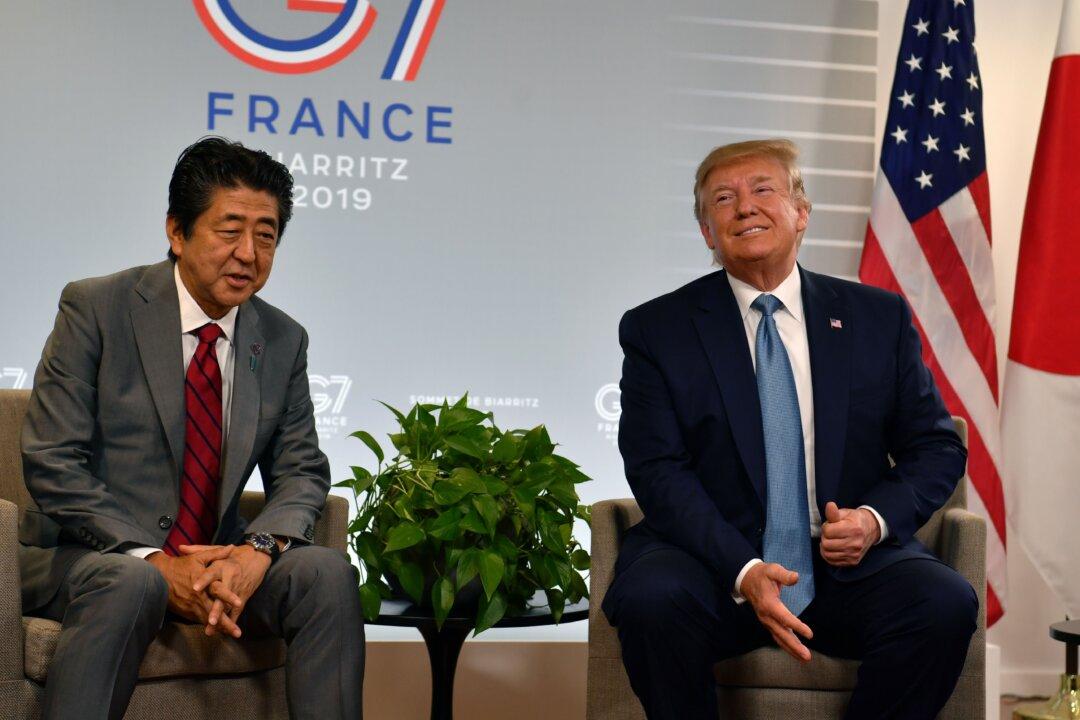U.S. President Donald Trump and Japan Prime Minister Shinzo Abe reached an agreement on Aug. 25, whereby the latter promised to import $7 billion more of U.S. agricultural products. Although both Trump and Abe did not directly mention the U.S.-China trade talks, some observers have analyzed that it would have a potential impact on Beijing’s negotiating tactics.
US-Japan Deal
Trump and Abe held a meeting on the sidelines of the G-7 Summit in Biarritz, southwestern France on August 25.After the meeting, the two state leaders announced to media that they reached an agreement for a trade deal, which Abe said he hoped would be formally signed in New York next month.





